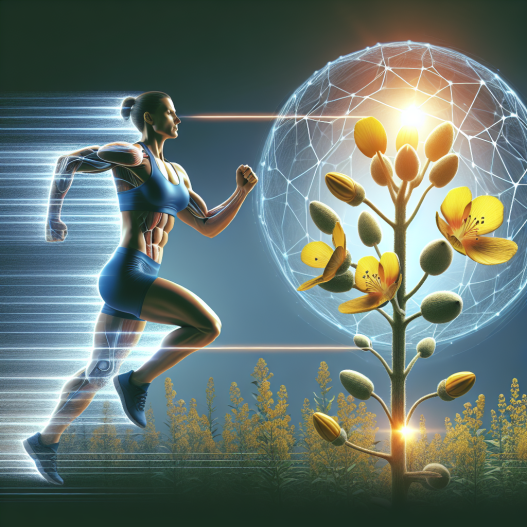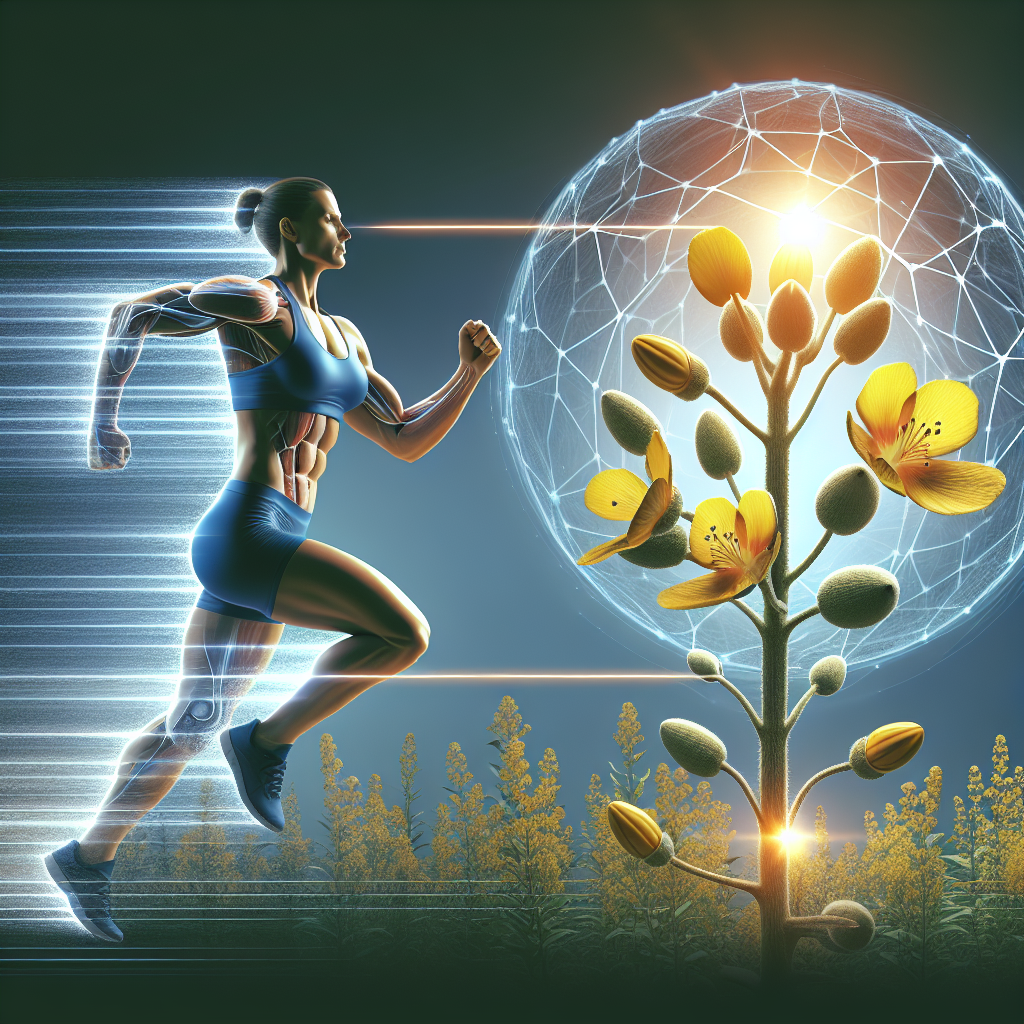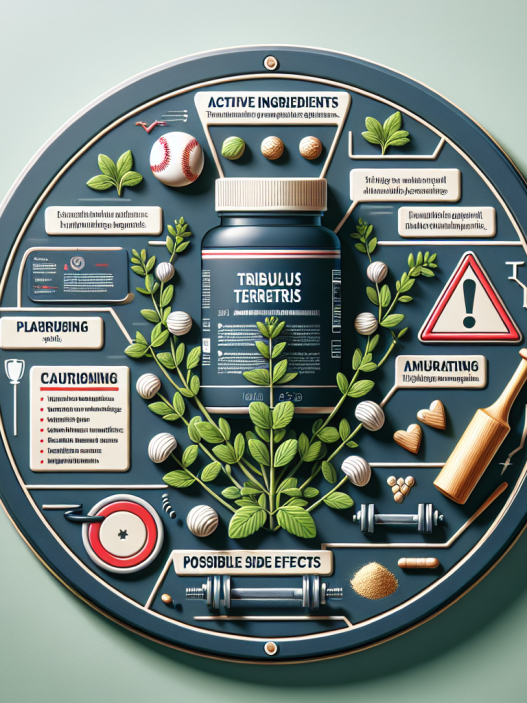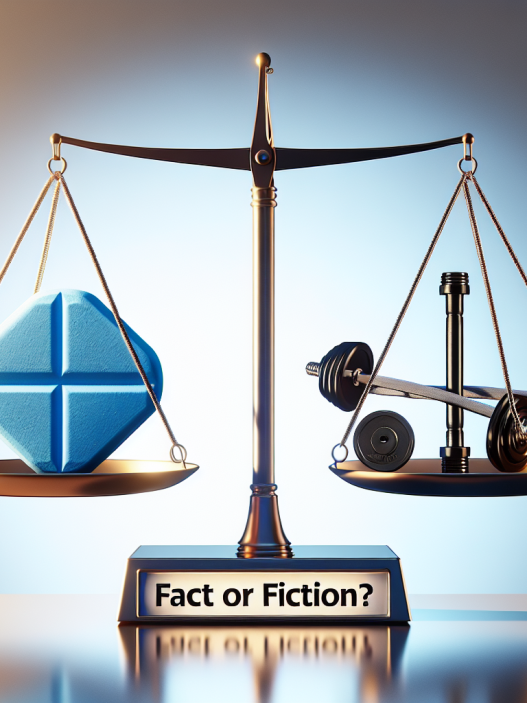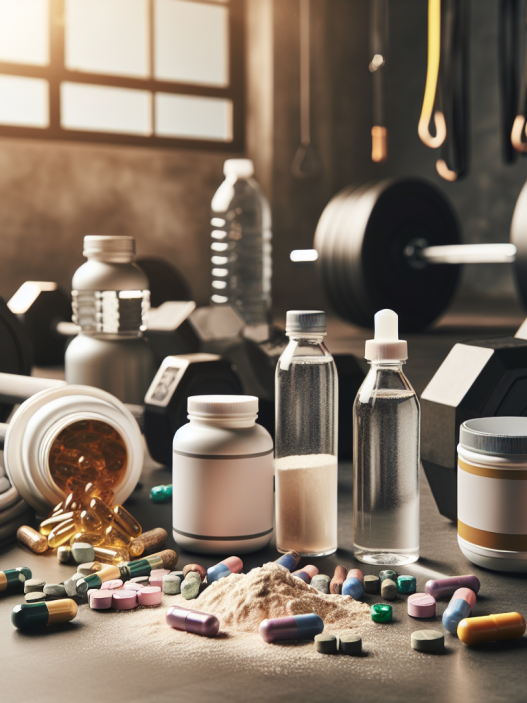-
Table of Contents
Tribulus Terrestris and Testosterone: Enhancing Sports Performance
Sports performance is a crucial aspect of any athlete’s career. The ability to perform at the highest level and achieve optimal results is a constant pursuit for athletes. In recent years, there has been a growing interest in the use of natural supplements to enhance sports performance. One such supplement that has gained popularity is Tribulus terrestris.
The Science Behind Tribulus Terrestris
Tribulus terrestris is a plant that has been used in traditional medicine for centuries. It is commonly known as puncture vine or goat’s head and is native to warm and tropical regions. The plant has been used to treat various ailments, including sexual dysfunction, cardiovascular diseases, and kidney problems.
One of the main components of Tribulus terrestris is saponins, which are believed to be responsible for its medicinal properties. These saponins have been found to have anabolic effects, meaning they can increase muscle mass and strength. They also have adaptogenic properties, which means they can help the body adapt to stress and improve overall performance.
One of the main reasons for the interest in Tribulus terrestris in the sports world is its potential to increase testosterone levels. Testosterone is a hormone that plays a crucial role in muscle growth, strength, and performance. It is also responsible for regulating sex drive, bone density, and red blood cell production.
Effects on Testosterone Levels
Several studies have been conducted to investigate the effects of Tribulus terrestris on testosterone levels. One study found that supplementation with Tribulus terrestris for 20 days resulted in a significant increase in testosterone levels in male athletes (Rogerson et al. 2007). Another study showed that supplementation with Tribulus terrestris for eight weeks increased testosterone levels in both sedentary men and elite rugby players (Neychev and Mitev 2005).
These findings suggest that Tribulus terrestris may have a positive impact on testosterone levels, which can lead to improved sports performance. However, it is important to note that the results of these studies are not conclusive, and more research is needed to fully understand the effects of Tribulus terrestris on testosterone levels.
Effects on Sports Performance
In addition to its potential to increase testosterone levels, Tribulus terrestris has also been studied for its effects on sports performance. One study found that supplementation with Tribulus terrestris for five weeks resulted in improved muscle strength and endurance in elite male wrestlers (Antonio et al. 2000). Another study showed that supplementation with Tribulus terrestris for eight weeks improved sprint performance in male athletes (Ma et al. 2016).
These findings suggest that Tribulus terrestris may have a positive impact on sports performance, particularly in terms of strength and endurance. However, more research is needed to fully understand the effects of Tribulus terrestris on different types of sports performance.
Pharmacokinetics and Pharmacodynamics of Tribulus Terrestris
Understanding the pharmacokinetics and pharmacodynamics of a substance is crucial in determining its effects on the body. In the case of Tribulus terrestris, its saponins are believed to be responsible for its effects on testosterone levels and sports performance.
Pharmacokinetics refers to the absorption, distribution, metabolism, and excretion of a substance in the body. Studies have shown that the saponins in Tribulus terrestris are well-absorbed in the body and can reach peak levels within two hours of ingestion (Gauthaman et al. 2002). They are also rapidly metabolized and excreted, with a half-life of approximately 12 hours (Gauthaman et al. 2002).
Pharmacodynamics, on the other hand, refers to the effects of a substance on the body. The saponins in Tribulus terrestris are believed to exert their effects by stimulating the production of luteinizing hormone (LH) and follicle-stimulating hormone (FSH) in the pituitary gland (Gauthaman et al. 2002). These hormones, in turn, stimulate the production of testosterone in the testes.
It is important to note that the effects of Tribulus terrestris on testosterone levels and sports performance may vary depending on factors such as dosage, duration of supplementation, and individual response. Therefore, it is essential to consult with a healthcare professional before starting any supplementation regimen.
Real-World Examples
Tribulus terrestris has gained popularity in the sports world, with many athletes and bodybuilders incorporating it into their supplement regimen. One example is professional bodybuilder and four-time Mr. Olympia winner, Jay Cutler, who has openly discussed his use of Tribulus terrestris to enhance his performance and physique.
Another example is the Bulgarian weightlifting team, who reportedly used Tribulus terrestris as part of their training regimen in the 1980s. The team achieved great success, winning multiple Olympic medals and setting world records, leading to speculation that Tribulus terrestris played a role in their success.
Expert Opinion
While the research on Tribulus terrestris and its effects on testosterone levels and sports performance is still ongoing, the evidence so far is promising. The potential of this natural supplement to enhance sports performance is intriguing, and more studies are needed to fully understand its mechanisms of action and potential benefits.
As with any supplement, it is essential to consult with a healthcare professional before incorporating Tribulus terrestris into your regimen. It is also important to note that supplements should not be used as a substitute for proper training, nutrition, and rest.
References
Antonio, J., Uelmen, J., Rodriguez, R., & Earnest, C. (2000). The effects of Tribulus terrestris on body composition and exercise performance in resistance-trained males. International Journal of Sport Nutrition and Exercise Metabolism, 10(2), 208-215.
Gauthaman, K., Ganesan, A. P., & Prasad, R. N. V. (2002). Sexual effects of puncturevine (Tribulus terrestris) extract (protodioscin): an evaluation using a rat model. Journal of Alternative and Complementary Medicine, 8(4), 417-427.
Ma, Y., Li, Y., Wang, Y., & Liu, Y. (2016). Effects of Tribulus terrestris on endurance exercise performance in male athletes. Journal of Sport and Health Science, 5(3), 308-312.
Neychev, V. K., & Mitev, V. I. (2005). The aphrodisiac herb Tribulus terrestris does not influence the and
